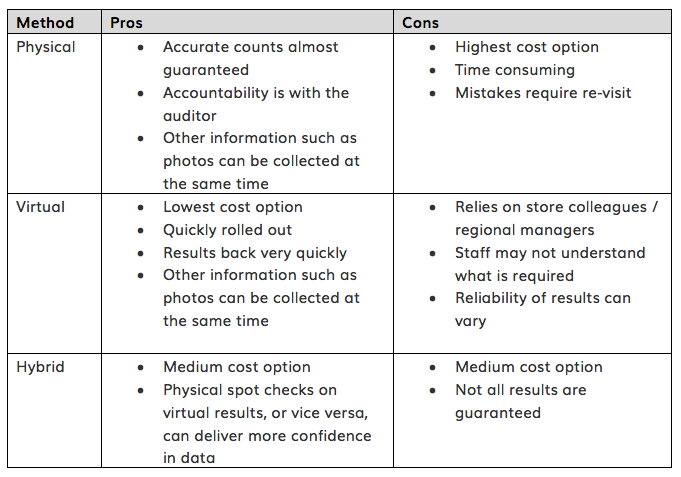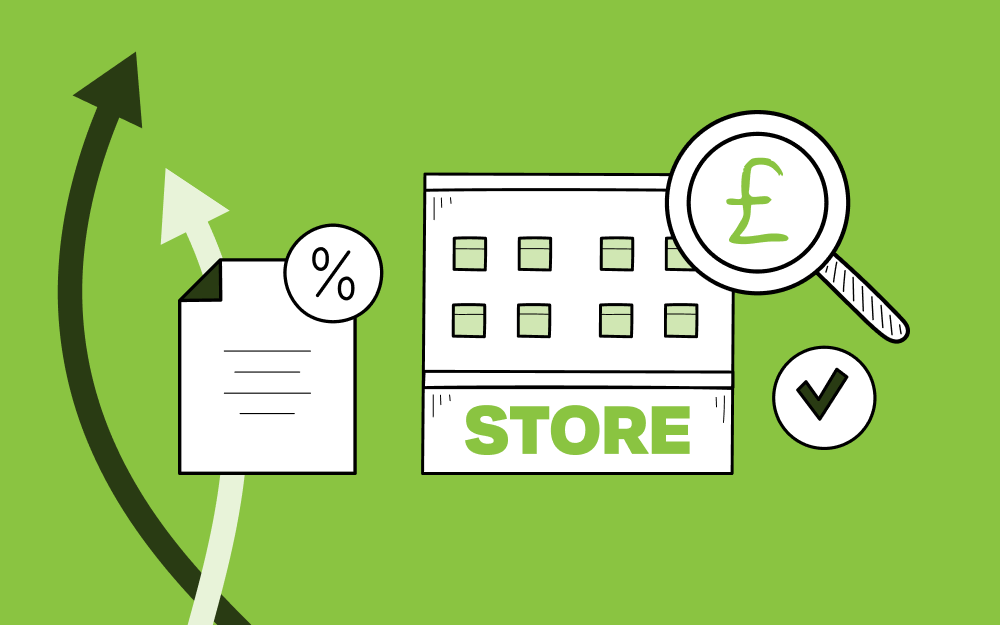Conducting Retail Store Audits


Knowing what is in your stores, from fixtures and fittings to the condition of store furniture and everything in between, can help you to make business-critical decisions, maximise your in-store sales and save resources. How do you get there? A retail store audit.
For many retailers, store data is held on various spreadsheets, is often out of date and is not perceived to be accurate or reliable, particularly if the aim is to use it to allocate precise quantities of marketing materials to stores.
But knowing the details of your store estate goes much further than material allocations. You might need to know what signage is currently being used in the store and whether it’s compliant with the latest regulations. You might need to know which stores you should prioritise for a refit. Operations may want to know if there are enough sockets for your new till points or if they can install new doors. Your marketing department may need to know whether there is enough room on the high street for an A-frame. The list goes on and on.
In order to be able to utilise your store information, it needs to be kept up-to-date. Knowing precise quantities of fixtures and fittings in store can save money on campaign materials, understanding which stores have a competitor nearby can help you to better target marketing to drive customers through your doors, and being able to see where improvements need to be made is key to great in-store experiences. But none of this is possible if your data doesn’t represent reality.
A common solution to understanding exactly what is in each store is to carry out store audits. You can conduct store audits using third parties, or your store staff can complete them in-house with the right software.
Audits are perfect for collecting both quantitative and qualitative data, you can ask how many tills, poster points or changing rooms there are, but you can also collect information about what’s in each store’s immediate vicinity, what the high street looks like, whether there is a clear view of every window and whether shopfronts are being used in a way that maximises their impact.
You can conduct retail store audits in three main ways.:
There are pros and cons of each method:

Another option is a combination of physical and virtual audits.
For example, Colateral’s platform can be used to carry out a virtual audit, but then auditors can be used to complete spot checks in stores. Alternatively, the data from a large physical audit can be checked with a series of smaller virtual audits by store teams.
When you have collected and analysed your store data, you are able to make business decisions, plan changes in-store and produces more targeted and effective marketing campaigns across the estate.
However, regardless of how you carry out your store audit, keeping your data accurate and up to date can be a constant challenge. Stores get updated, new signs go in, wear and tear becomes apparent, and your store audit data can become out of date very quickly. To keep on top of this, it’s helpful if you can save and update your data centrally, as and when changes are made in-store, in real-time.
We know you need to be able to analyse and utilise your store audit data quickly and effectively, as well as be able to upload and/or update everything when new store audits or in-store changes take place. You also need to make sure it’s saved somewhere secure for your different teams or relevant departments to access.
Colateral’s virtual store audit software enables you to regularly collect new information from stores. However, if all of this information is kept on spreadsheets, versions can get confused, and errors are easily made.
Working hand in hand with the physical, virtual and hybrid store audit options, Colateral’s Location Management tool is a central hub for all your store information that’s shared between you and your stores.
With all of this information held and dynamically maintained in the system, your marketing teams can focus on delivering campaigns rather than analysing data.
If you’re interested in working with us to help you conduct a retail store audit or want to find out more about Colateral’s profiling tools, please get in touch here.
 Thought Leadership
Thought Leadership
The quality and clarity of everything from staff communications to instore marketing campaigns is now more important than ever.
 Thought Leadership
Thought Leadership
Retail audits are used to collect valuable information about your store estate and the effectiveness...